Filter by
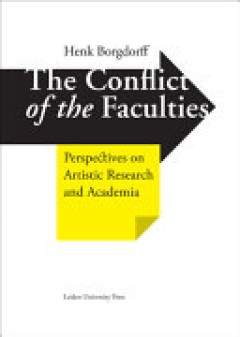
The Conflict of the Faculties: Perspectives on Artistic Research and Academia
Artistic research is an endeavour in which the artistic and the academic are connected. In this emerging field of research artistic practices contribute as research to what we know and understand, and academia opens its mind to forms of knowledge and understanding that are entwined with artistic practices. Henk Borgdorff also addresses how we comment on such issues, and how the things we say ca…
- Edition
- 19
- ISBN/ISSN
- 9789087281670
- Collation
- x, 277 p
- Series Title
- -
- Call Number
- 707
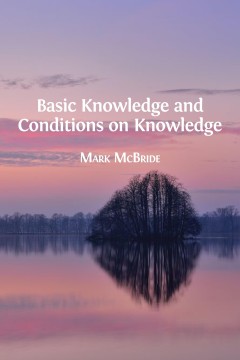
Basic knowledge and conditions on knowledge
How do we know what we know? In this stimulating and rigorous book, Mark McBride explores two sets of issues in contemporary epistemology: the problems that warrant transmission poses for the category of basic knowledge; and the status of conclusive reasons, sensitivity, and safety as conditions that are necessary for knowledge. To have basic knowledge is to know (have justification for) some …
- Edition
- -
- ISBN/ISSN
- 9781783742851
- Collation
- vii, 228p.
- Series Title
- -
- Call Number
- 121 MAR b

Toward shared Research: participatory and integrative approach in researching…
Intercultural, interdisciplinary, and transdisciplinary research interfaces confront researchers with considerable challenges. Towards Shared Research portrays how scholars from different disciplinary and geographical origins and at various academic career stages strive for a more inclusive and better understanding of knowledge about African environments. The book is addressed to researchers, f…
- Edition
- -
- ISBN/ISSN
- 9783839451502
- Collation
- 186p.: ill.
- Series Title
- -
- Call Number
- 630.967 TOW t
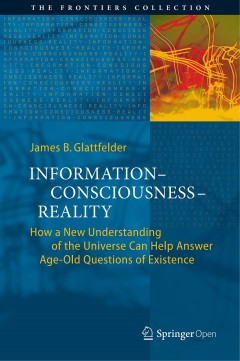
Information-consciousness-reality : how a new understanding of the universe c…
This open access book chronicles the rise of a new scientific paradigm offering novel insights into the age-old enigmas of existence. Over 300 years ago, the human mind discovered the machine code of reality: mathematics. By utilizing abstract thought systems, humans began to decode the workings of the cosmos. From this understanding, the current scientific paradigm emerged, ultimately discover…
- Edition
- -
- ISBN/ISSN
- 9783030036331
- Collation
- xxiv, 662p. : ill.
- Series Title
- -
- Call Number
- 113 GLA i
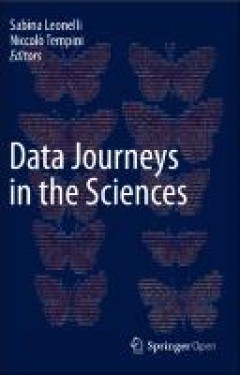
Data journeys in the sciences
This groundbreaking, open access volume analyses and compares data practices across several fields through the analysis of specific cases of data journeys. It brings together leading scholars in the philosophy, history and social studies of science to achieve two goals: tracking the travel of data across different spaces, times and domains of research practice; and documenting how such journeys…
- Edition
- -
- ISBN/ISSN
- 9783030371777
- Collation
- xvii, 412p.: ill.
- Series Title
- -
- Call Number
- 004 DAT d
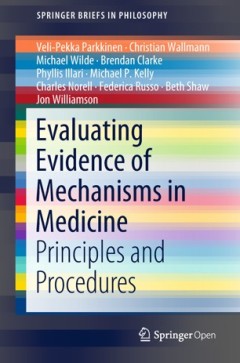
Evaluating evidence of mechanisms in medicine : principles and procedures
This book is the first to develop explicit methods for evaluating evidence of mechanisms in the field of medicine. It explains why it can be important to make this evidence explicit, and describes how to take such evidence into account in the evidence appraisal process. In addition, it develops procedures for seeking evidence of mechanisms, for evaluating evidence of mechanisms, and for combini…
- Edition
- -
- ISBN/ISSN
- 9783319946108
- Collation
- xviii, 125p. : ill.
- Series Title
- -
- Call Number
- 610.1 EVA e
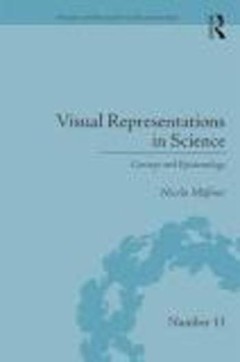
Visual representations in science : concept and epistemology
Visual representations (photographs, diagrams, etc.) play crucial roles in scientific processes. They help, for example, to communicate research results and hypotheses to scientific peers as well as to the lay audience. In genuine research activities they are used as evidence or as surrogates for research objects which are otherwise cognitively inaccessible. Despite their important functional r…
- Edition
- -
- ISBN/ISSN
- 9781138089938
- Collation
- 372 p.; 22 cm.
- Series Title
- -
- Call Number
- 121 MOB v
 Computer Science, Information & General Works
Computer Science, Information & General Works  Philosophy & Psychology
Philosophy & Psychology  Religion
Religion  Social Sciences
Social Sciences  Language
Language  Pure Science
Pure Science  Applied Sciences
Applied Sciences  Art & Recreation
Art & Recreation  Literature
Literature  History & Geography
History & Geography